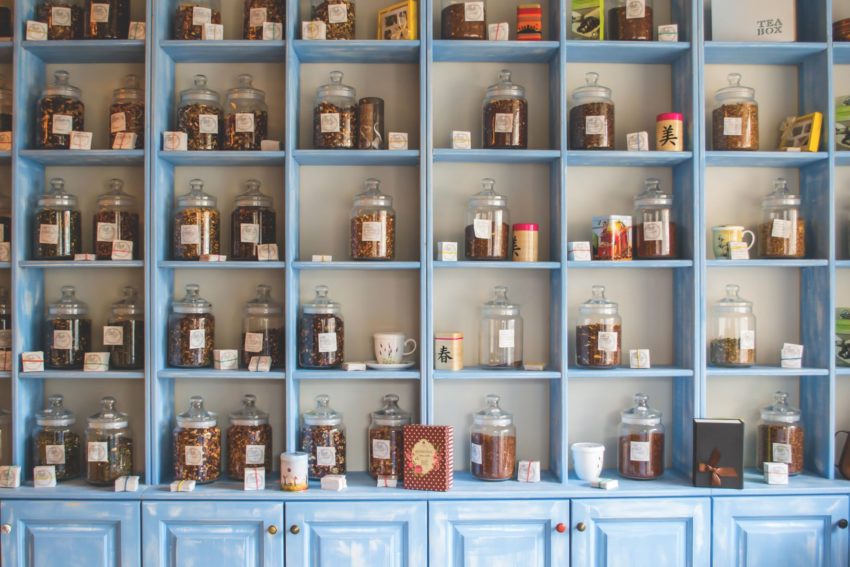Herbs and other natural remedies are often recommended to those who are struggling with mental health conditions like anxiety, depression, and bipolar disorder. However, there’s also a lot of confusion regarding the efficacy and safety of these supplements.
For those who are considering using natural remedies for mental health, the following questions (and answers) can provide more insight and help them to make more informed decisions.
Table of Contents
(click on a question below to be directed quickly)
Can you treat mental illness without medication?
Which herbs are best for mental health?
Which herbs are best for depression?
Which herbs are best for anxiety?
Which plants improve brain function?
Can Ayurvedic medicine treat mental health?
Can You Treat Mental Illness Without Medication?
Yes, mental illness can be treated without prescription medication.
Approximately 40 million Americans take psychiatric drugs, according to a research letter published by JAMA Internal Medicine. However, many others choose not to take medication and prefer a more holistic approach to managing their conditions.
It’s important to note that, although medication is not always required to treat mental health conditions, it is still best to work with a licensed professional when dealing with depression, anxiety, and other mental health challenges.
These kinds of conditions can have serious (and in some cases life-threatening) symptoms, and it’s not a good idea to handle them with a DIY approach. A therapist or other professional can make recommendations tailored to the individual client and set them up for better results now and in the future.
Which Herbs Are Best for Mental Health?
There are lots of herbal supplements that professionals recommend for addressing mental health conditions. The following are some of the most popular options:
Ginseng
Ginseng supplements are made from the root of the ginseng plant (specifically American Ginseng and Asian Ginseng). For thousands of years, Traditional Chinese Medicine practitioners have used ginseng to help patients experience mental clarity and reduce stress.
Some research (such as this study published by the Journal of Ginseng Research) shows that ginseng may be beneficial when it comes to increasing energy and motivation in people who are struggling with depression, too.
Chamomile
Chamomile is an herb that can be soothing and symptom-reducing to those who are dealing with depression or anxiety.
Research published by Alternative Therapies in Health and Medicine shows that, when compared to a placebo, chamomile is more effective when it comes to providing relief from depression symptoms.
This study published by the Journal of Clinical Trials also shows that it is more effective than a placebo when it comes to managing anxiety.

Which Herbs Are Best for Depression?
For those who are struggling with depression, the following herbs are most often recommended to minimize symptoms and improve quality of life:
St. John’s Wort
The herb St. John’s Wort is often recommended to those struggling with depression. It is particularly effective, according to a research review published by Systematic Reviews, at treating mild and moderate depression.
St. John’s Wort appears to be effective because it helps to increase the activity of neurotransmitters like serotonin, which plays a key role in mood regulation.
Saffron
Saffron is a perennial herb that can be used as both a medicine and a spice. It has long been used as an antidepressant, and research shows that it can be highly effective.
For example, this study published by the Journal of Pharmacy and BioAllied Sciences shows that compounds like crocin and safranal, which are naturally present in saffron, may help to improve the reuptake of serotonin, dopamine, and norepinephrine.
Rhodiola Rosea
Rhodiola Rosea is an herb that has long been used in western medicine and Traditional Chinese Medicine. According to double-blind, placebo-controlled studies (like this one published by the Journal of Clinical Trials), it is safe and effective at treating mild and moderate symptoms of depression.
Which Herbs Are Best for Anxiety?
For those who need help managing anxiety symptoms, other herbs like these may be more effective:
Lavender
Lavender is an herb that belongs to the mint family. It is often recommended by herbalists and aromatherapists because of its calming, anxiety-reducing properties.
This study published by Mental Health Clinician confirms lavender’s efficacy and shows that two of its terpenes, linalool and linalyl acetate, can have calming effects and reduce anxiety and stress.
Valerian
The valerian plant is native to Europe and Asia. It is often recommended to those who struggle with anxiety, especially those whose anxiety symptoms interfere with their sleep quality.
According to this study published by the Journal of Evidence-Based Integrative Medicine, valerian can be an effective anxiety treatment option, particularly when it comes to combating insomnia-related symptoms.
Passionflower
Passionflower is a perennial plant with over 550 different species. Some studies show that it can help to reduce feelings of anxiety, nervousness, and restlessness. This study, for example, published by Nutrition Journal, even showed that its effects are similar to those produced by benzodiazepines (a common anti-anxiety medication).
Which Plants Improve Brain Function?
Often, those who deal wi